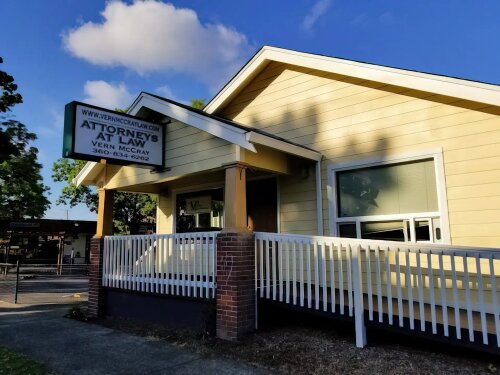Best Criminal Litigation Lawyers in Washington
Share your needs with us, get contacted by law firms.
Free. Takes 2 min.
Or refine your search by selecting a city:
List of the best lawyers in Washington, United States
About Criminal Litigation Law in Washington, United States
Criminal litigation in Washington refers to the legal proceedings initiated when an individual is accused of violating a state or federal criminal law. The process begins with an investigation and may proceed through arrest, formal charges, arraignment, trial, and sentencing, depending on the circumstances. Washington State criminal law covers a wide range of offenses, from misdemeanors such as theft or trespassing to serious felonies like assault, robbery, or homicide. Each case is handled according to court rules, statutes, and constitutional protections that are designed to safeguard the rights of the accused while ensuring that justice is served.
Why You May Need a Lawyer
There are many situations in which retaining a criminal defense lawyer is crucial if you are facing criminal charges in Washington. A lawyer can provide key assistance in the following circumstances:
- You have been arrested or charged with a crime, regardless of the severity.
- You are being investigated by law enforcement and may be a suspect.
- You have received a summons to appear in court for a criminal matter.
- You are facing penalties such as jail time, fines, probation, or loss of professional licenses.
- You need help understanding your legal rights and the possible consequences of your case.
- You wish to negotiate a plea bargain, reduce charges, or seek dismissal.
- You want representation during trial to ensure you have a fair defense.
- You plan to appeal a conviction or sentence.
The stakes in criminal cases can be extremely high, impacting your freedom, reputation, and future opportunities. An experienced attorney protects your rights and ensures the legal process is followed correctly.
Local Laws Overview
Washington State criminal law is primarily governed by the Revised Code of Washington (RCW). Some aspects that are particularly relevant to criminal litigation include:
- Classification of crimes: Washington divides crimes into gross misdemeanors, misdemeanors, and felonies (Class A, B, and C).
- Sentencing guidelines: The state uses sentencing grids to determine the range of sentences for different offenses, taking into account prior criminal history.
- DUI laws: Washington has strict driving under the influence laws, with penalties increasing for repeat offenders or high blood alcohol levels.
- Three Strikes Law: Certain repeat offenders may face mandatory life sentences.
- Legal procedures: The criminal process includes arraignment, pretrial hearings, motions, plea bargaining, trial, and sentencing, following specific timelines and protocols.
- Rights of the accused: Defendants have the right to remain silent, to have legal counsel, to a speedy and public trial, and to be presumed innocent until proven guilty.
- Juvenile justice: Separate procedures exist for minors accused of crimes, focusing more on rehabilitation.
Understanding Washington's specific laws and procedures is essential for anyone facing criminal charges, as penalties and outcomes can vary widely depending on the circumstances.
Frequently Asked Questions
What should I do if I am arrested in Washington?
If you are arrested, remain calm and do not resist. Clearly ask to speak to an attorney before answering any questions. Exercise your right to remain silent and do not discuss your case with anyone until you have legal representation.
Do I need a lawyer if I am charged with a misdemeanor?
It is highly advisable to consult a lawyer for any criminal charge, including misdemeanors. Even less serious offenses can have long-term consequences, such as a criminal record, fines, or jail time.
What happens at an arraignment?
An arraignment is your first court appearance after being charged. The judge will read the charges, inform you of your rights, and ask for your plea. Bail may also be discussed at this hearing.
Can I get bail in Washington?
In many cases, you may request bail. The court will consider factors like the severity of the offense, your criminal history, and your risk of flight before deciding on bail amount or conditions.
What is a plea bargain and should I accept one?
A plea bargain is an agreement to plead guilty to a lesser charge or receive a lighter sentence. Whether to accept depends on the facts of your case. An attorney can help you evaluate your options and the potential consequences.
Will my criminal record be public?
Yes, criminal records in Washington are generally public, though there are exceptions for certain juvenile or sealed records. This information can impact employment, housing, and other areas.
Can I have my criminal record expunged in Washington?
Some criminal records can be vacated or expunged if you meet specific criteria and wait periods. Not all offenses are eligible, so consult an attorney to review your situation.
What is the difference between a felony and a misdemeanor?
A misdemeanor is a less serious crime with a maximum penalty of up to 90 days or one year in jail and smaller fines. Felonies carry more severe penalties, including prison time and larger fines.
Do police need a warrant to search my property?
In most cases, law enforcement officers need a warrant to search your property. There are exceptions, such as consent, plain view, or emergency situations. An attorney can assess the legality of a search in your case.
What should I do if I believe my rights were violated?
Contact a criminal defense attorney immediately if you believe law enforcement violated your rights. Your lawyer can help you understand your options and raise objections in court if appropriate.
Additional Resources
For more information and assistance with criminal litigation in Washington State, consider contacting the following organizations:
- Washington State Bar Association - Provides lawyer referrals and legal information.
- Washington Defender Association - Supports public defenders and their clients.
- Local Public Defender’s Office - Offers legal representation for those unable to afford private counsel.
- Washington Courts - Official website for state court procedures and case information.
- American Civil Liberties Union of Washington - Offers legal resources and support on civil rights issues.
Next Steps
If you are facing criminal charges or need legal advice in the area of criminal litigation in Washington, here are some recommended steps:
- Seek legal counsel immediately, either from a private attorney or, if eligible, through the public defender’s office.
- Do not discuss your case with anyone except your lawyer.
- Gather and preserve any documents or evidence related to your case, such as citations, police reports, and witnesses’ contact information.
- Follow your attorney’s advice regarding court appearances and communication with law enforcement.
- Familiarize yourself with your legal rights and responsibilities as outlined by the Washington Courts and legal aid organizations.
Taking prompt and informed action can significantly improve your chances of a favorable outcome in your criminal case. If in doubt, always prioritize speaking with a qualified criminal defense lawyer.
Lawzana helps you find the best lawyers and law firms in Washington through a curated and pre-screened list of qualified legal professionals. Our platform offers rankings and detailed profiles of attorneys and law firms, allowing you to compare based on practice areas, including Criminal Litigation, experience, and client feedback.
Each profile includes a description of the firm's areas of practice, client reviews, team members and partners, year of establishment, spoken languages, office locations, contact information, social media presence, and any published articles or resources. Most firms on our platform speak English and are experienced in both local and international legal matters.
Get a quote from top-rated law firms in Washington, United States — quickly, securely, and without unnecessary hassle.
Disclaimer:
The information provided on this page is for general informational purposes only and does not constitute legal advice. While we strive to ensure the accuracy and relevance of the content, legal information may change over time, and interpretations of the law can vary. You should always consult with a qualified legal professional for advice specific to your situation.
We disclaim all liability for actions taken or not taken based on the content of this page. If you believe any information is incorrect or outdated, please contact us, and we will review and update it where appropriate.
Browse criminal litigation law firms by city in Washington
Refine your search by selecting a city.









